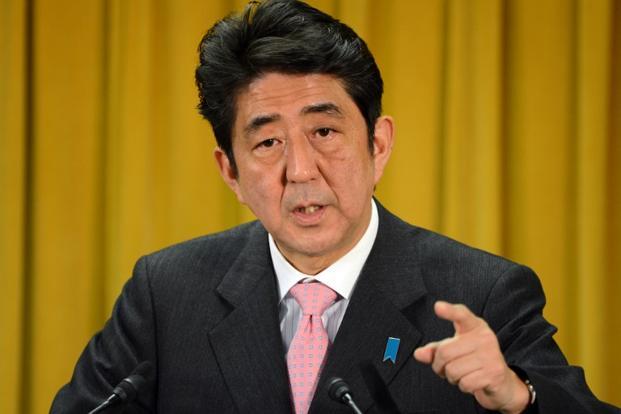Japanese PM Shinzo Abe has called snap election in December, two years ahead of schedule.
At a news briefing, Shinzo Abe said he would dissolve parliament on November 21 and was also delaying a planned but unpopular increase in sales tax.
The prime minister was elected in 2012 with an ambitious plan to revive the economy, but has struggled to do so.
Shinzo Abe’s popularity has fallen but he is expected to win the election, which will take place in mid-December.
“I will dissolve the lower house on 21 [November] ,” Shinzo Abe said.
His party, the Liberal Democrats, already has a majority in the lower house, but analysts said Shinzo Abe hoped to consolidate power over an opposition party which is in disarray.
Shinzo Abe’s popularity fell below 50%. In another year from now he may face a very tough battle to get re-elected.
An early election means he is almost certain to win another majority.
The rise in Japan’s sales tax was legislated by the previous government in 2012 to curb Japan’s huge public debt, which is the highest among developed nations.
The first rise – from 5% to 8% – took place in April.
Shinzo Abe’s government had hoped the increase would boost income but instead Japanese consumers stopped spending.
Figures released on November 17 showed Japan had fallen back into a technical recession.
The second increase, to 10%, was set for October 2015 but will now be delayed by at least 18 months.
An election does not need to be held until 2016.
Howevr, Shinzo Abe is looking for a secure mandate ahead of introducing unpopular policies that could see his popularity fall even further, correspondents say.
He has strongly advocated restarting Japan’s nuclear power generation plants, all of which were shut down amid public anger after the Fukushima disaster in 2011.
Before the accident about 30% of Japan’s power was nuclear-generated, and the prime minister says the shutdown is damaging the economy because of expensive energy imports.
Shinzo Abe has also supported a reinterpretation of Japan’s constitution that would allow the use of force to act to defend allies, known as collective self-defense.
[youtube JcV9giZnT4E 650]
